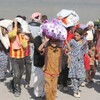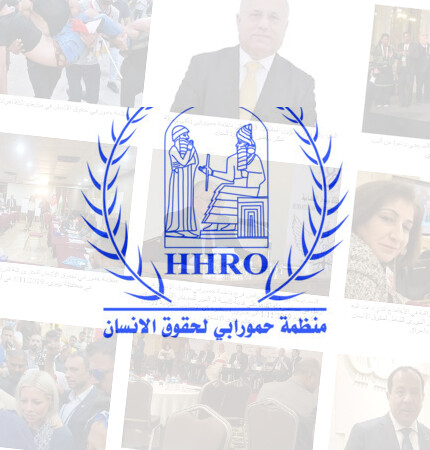 Facebook
Facebook
 Twitter
Twitter
 YouTube
YouTube
 Telegram
Telegram
- الرئيسية
- تقارير وبحوث
- • WHO supports Iraqi...
• WHO supports Iraqi capacity on mass casualty management of chemical agents usage.
·WHO supports Iraqi capacity on mass casualty management of chemical agents usage.
In line with preparations for Mosul operations, WHO and Ministries of Health on both Federal and Regional levels concluded on 18 October 2016 a series of trainings on mass casualty management and decontamination of chemical agents usage in Iraq facilitated by a specialized expert in chemical weapons, decontamination, and treatment of mass casualties.
The training was officially requested by Iraqi health authorities who anticipated a potential risk of chemical agent usage by the armed opposition groups (AOG) that might coincide with the advancement of Mosul and Hawija liberation operations.
“A low risk of improvised chemical agent usage might be expected,” said Altaf Musani, WHO Representative to Iraq. “The Iraqi health authorities requested WHO to support building the capacity of local professionals in the management of chemical agents causalities at the conclusion of assessment mission conducted in the country in July 2016. The assessment recommended training medical staff working in mass management of casualties in risk areas in addition to providing them with personal protective equipment (PPEs). 430 sets are in stock waiting for hand-over to Federal and KRG ministries of health” he added.
The first phase of the training was organized for medical staff from Erbil, Dahok, Suleimaniya, Kirkuk, and Ninawa and covered both theoretical and practical parts; the latter was performed in selected hospitals in the mentioned governorates. One hundred training PPE sets with a thorough explanation on their proper usage were provided to participating Directorates of Health (DOHs) staff with the aim of disseminating and sharing the knowledge obtained from the training with their first line response colleagues.
A confirmed chemical attack by AOG was reported this year targeting civilians in the town of Taza in Kirkuk governorate on 8 March 2016. Victims had symptoms consistent with the use of a blistering chemical agent. The incident, which resulted in injuries of up to 600 people, suggests a possibility of utilizing chemical agents by AOG against civilians and security forces in Ninawa.





